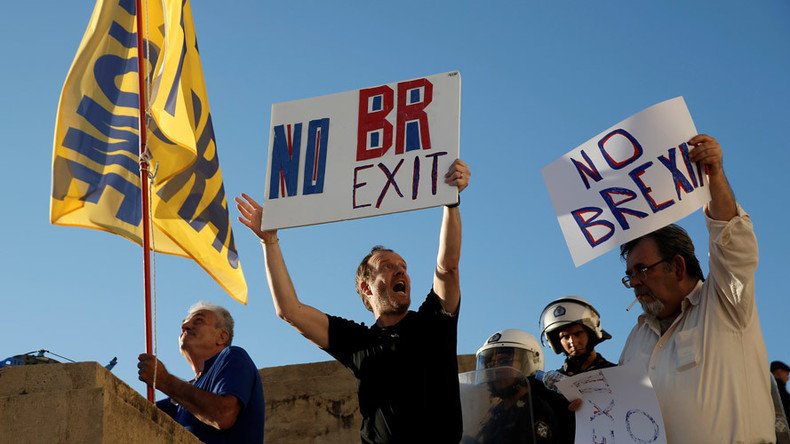Is Brexit masculine or feminine? Europe just can’t decide

European nations are in disagreement over whether ‘Brexit’ is a masculine or feminine noun.
As if the European Union wasn’t already divided enough, a new argument has broken out among the bloc’s members.
France, Germany and Spain are locked in a battle with Italy over Brexit – not the process of Britain leaving the EU, but the gender of the noun itself.
While the trio claim Brexit should be masculine, the Italians prefer a feminine version.
We don't want to wreck EU project but can't go back on #Brexit - May tells EU leaders https://t.co/JvMcR16upTpic.twitter.com/x32oR089eU
— RT UK (@RTUKnews) October 20, 2016
French speakers are already using a masculine version of the noun, ‘le Brexit,’ primarily because new words entering the language are rarely feminine.
Another possible explanation is that it’s common for nouns ending in ‘t’ to be masculine.
The Guardian newspaper reports the Germans have also decided ‘der Brexit’ should be male, likely because the word for exit, ‘der austritt,’ is masculine.
Spanish speakers have also opted for ‘el Brexit,’ probably because most English loan words become male by default.
"I've lived here 30 years and today I feel I don’t have a voice" https://t.co/hDPpkL5yX4
— RT UK (@RTUKnews) October 18, 2016
In Spanish, words ending in ‘o’ are typically male and those ending in ‘a’ are female. When it comes to imported words, which end in neither, Spaniards tend to opt for masculine conjugation.
Bucking the trend across Europe, Italian language experts claim that Brexit should be feminine.
The Academia della Crusca has published a lengthy explanation arguing the word ‘exit’ is feminine, and therefore the word Brexit should follow suit.
In Britain meanwhile, Brexit simply means Brexit.












